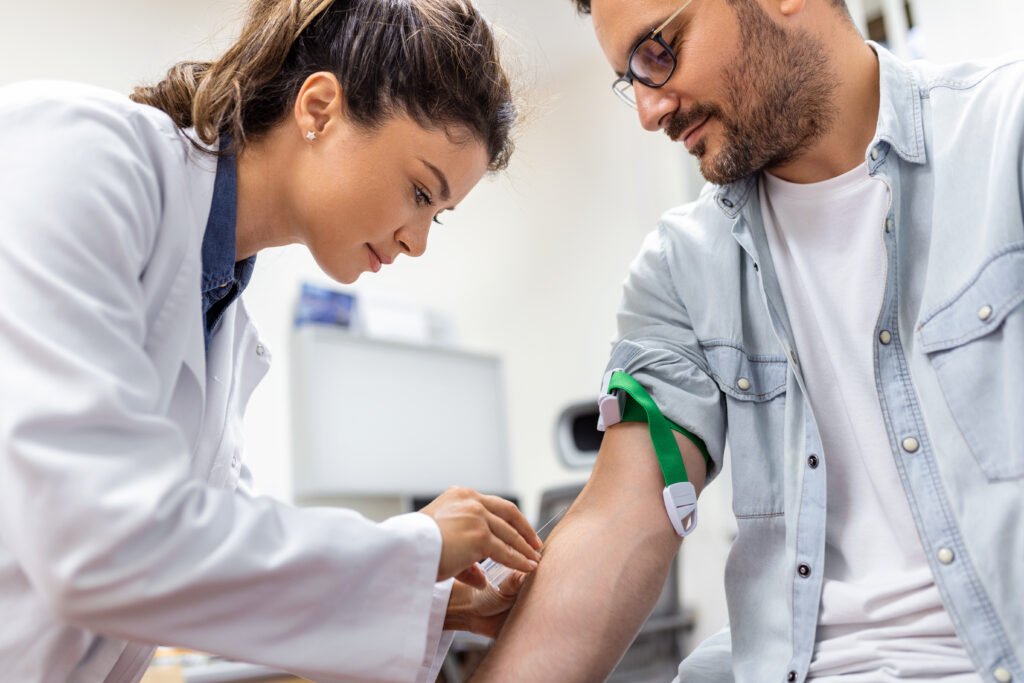
The Complete Guide to Ovarian Cancer Chemotherapy
Chemotherapy remains one of the most effective treatments for ovarian cancer. Even though the thought of chemotherapy can feel overwhelming, learning what to expect can make the journey less stressful. With the right knowledge, patients and families can prepare for treatment, manage side effects, and focus on recovery.
What Is Chemotherapy for Ovarian Cancer?

Chemotherapy uses strong drugs to kill cancer cells that grow and divide quickly. For ovarian cancer, doctors often recommend chemotherapy after surgery, but it can also be used before surgery to shrink tumors.
Doctors usually give chemotherapy in two ways:
- Intravenously (IV): The drugs enter directly into a vein.
- Intraperitoneally (IP): The medicine is placed into the abdominal cavity, where ovarian cancer usually spreads.
Most patients receive a combination of drugs, such as carboplatin and paclitaxel, to increase effectiveness. Treatment happens in cycles, usually every three to four weeks, giving the body time to recover.
Why Chemotherapy Matters in Ovarian Cancer
Doctors rely on chemotherapy for several important reasons:
- It destroys cancer cells left behind after surgery.
- It shrinks tumors that cannot be removed completely.
- It lowers the risk of recurrence.
- It improves symptoms in advanced cases, helping patients live more comfortably.
Therefore, chemotherapy plays a central role in managing ovarian cancer effectively.
What to Expect During Treatment

Chemotherapy treatment usually happens in an outpatient clinic, so patients can go home the same day. Each cycle includes a few important steps:
- Blood tests check whether the body is ready for another round.
- Pre-medication reduces nausea and allergic reactions.
- Chemotherapy drugs are given through an IV line or port.
The process can take several hours depending on the drug combination. Although the routine may seem repetitive, it becomes easier once patients know what to expect.
Common Side Effects
Because chemotherapy affects healthy cells as well as cancer cells, side effects are common. They vary from person to person, but some are more frequent.
Physical Side Effects
- Fatigue and low energy
- Nausea or vomiting
- Hair loss
- Loss of appetite or taste changes
- Mouth sores
- Higher risk of infection due to low white blood cell counts
Emotional Effects
- Anxiety and mood swings
- Stress from treatment demands
- Difficulty with concentration, often called “chemo brain”
Long-Term Effects
Some patients may also notice tingling in their hands and feet (peripheral neuropathy), early menopause, or changes in kidney and heart function. Doctors monitor these effects closely and adjust treatment when needed.
Supportive Care During Chemotherapy
Managing side effects is just as important as treating the cancer itself. Supportive care helps patients feel stronger and improves their overall quality of life.
- Nutrition support: Eating small, nutrient-rich meals helps maintain energy.
- Hydration: Drinking fluids flushes the drugs from the body.
- Medication: Anti-nausea and pain medicines reduce discomfort.
- Emotional support: Counseling, meditation, and support groups help reduce stress.
With these strategies, patients can cope better and continue treatment with confidence.
Coping Strategies for Daily Life
Life during chemotherapy changes, but there are many ways to adjust:
- Rest when needed, yet try light exercise like walking to boost energy.
- Keep a journal of symptoms to share with doctors.
- Lean on friends, family, and cancer support communities.
- Stay informed about treatment options to feel more in control.
These small steps make a big difference in managing both physical and emotional challenges.
Advances in Treatment
Chemotherapy remains a cornerstone of ovarian cancer care, but doctors are also combining it with new approaches. For example, PARP inhibitors target genetic mutations in cancer cells and improve outcomes for certain patients. Immunotherapy is also being studied as a promising option.
As research advances, treatments become more precise, offering patients more hope for the future.
When to Call the Doctor
Although many side effects are normal, some require immediate medical attention. Patients should call their doctor if they experience:
- High fever or persistent infections
- Severe nausea or vomiting
- Shortness of breath or chest pain
- Unusual bleeding or bruising
Prompt reporting prevents complications and keeps treatment on track.
Final Thoughts
Chemotherapy for ovarian cancer may feel intimidating at first, but knowledge brings strength. With proper medical care, supportive strategies, and strong emotional backing, patients can manage side effects and focus on healing.
Most importantly, chemotherapy continues to improve survival rates and quality of life. As new therapies combine with traditional methods, the future of ovarian cancer treatment looks brighter than ever.
